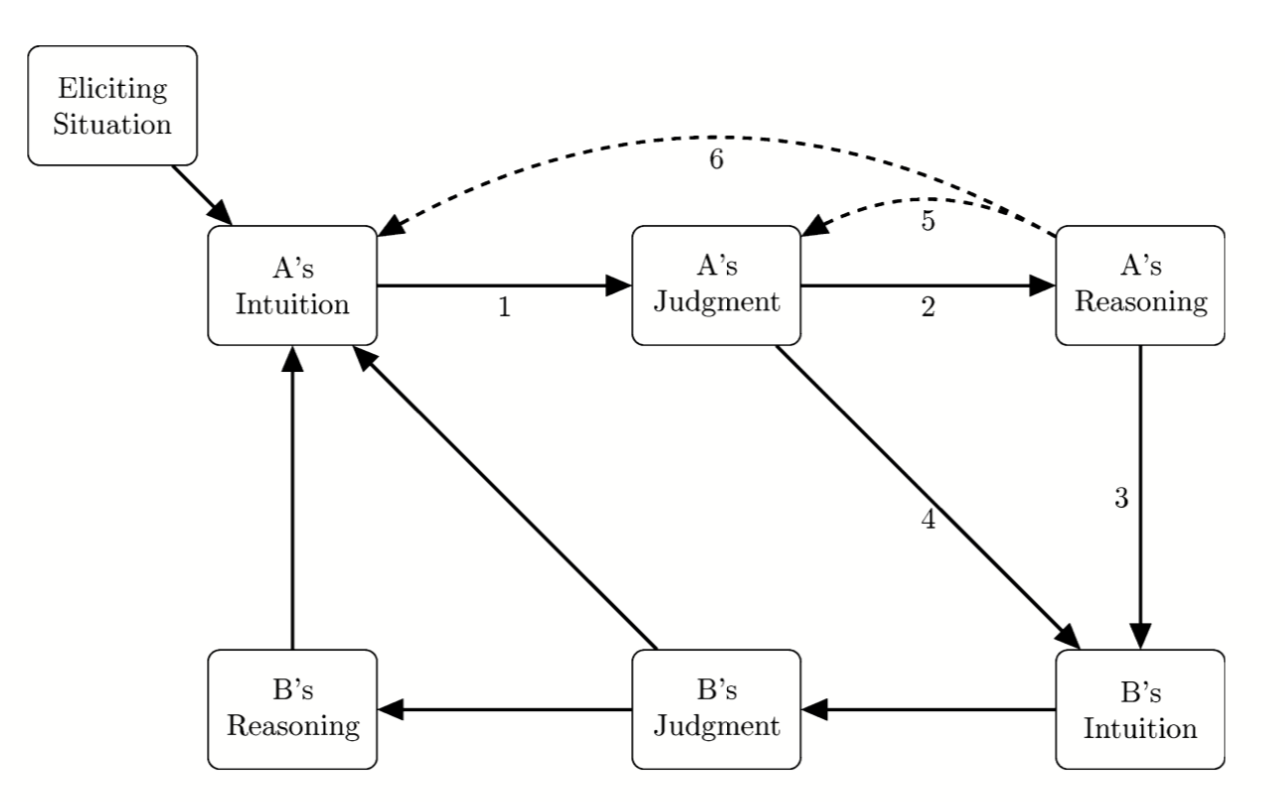Click here and press the right key for the next slide.
(This may not work on mobile or ipad. You can try using chrome or firefox, but even that may fail. Sorry.)
also ...
Press the left key to go backwards (or swipe right)
Press n to toggle whether notes are shown (or add '?notes' to the url before the #)
Press m or double tap to slide thumbnails (menu)
Press ? at any time to show the keyboard shortcuts

Moral Foundations Theory: An Approach to Cultural Variation
[email protected]
2
‘Moral-foundations researchers have investigated the similarities and differences in morality among individuals across cultures (Haidt & Joseph, 2004). These researchers have found evidence for five fundamental domains of human morality’
(Feinberg & Willer, 2013, p. 2)
aims
‘a systematic theory of morality, explaining its origins, development, and cultural variations’
‘It would be difficult to overestimate the influence of this theory on psychological science
‘because it caused a dramatic broadening in conceptualization of morality beyond narrow Western notions that have focused on individualistic virtues associated with protecting one’s rights.
‘there is significant support for the moral foundations hypothesis that predicts that conservatives tend to draw on virtues associated with binding communities more than liberals (Graham et al., 2009; Graham et al., 2011; Koleva et al., 2012)’
(Davis et al., 2017, p. 128).
[nativism] ‘There is a first draft of the moral mind’
[cultural learning] ‘The first draft of the moral mind gets edited during development within a culture’
[intuitionism] ‘Intuitions come first’ --- the Social Intuitionist Model is true


Haidt & Bjorklund, 2008 figure 4.1
‘moral evaluations generally occur rapidly and automatically, products of relatively effortless, associative, heuristic processing that psychologists now refer to as System 1 thinking’ (Graham et al., 2013, p. 66)
‘moral reasoning is done primarily for socially strategic purposes’ (Graham et al., 2013, p. 66)
[nativism] ‘There is a first draft of the moral mind’
[cultural learning] ‘The first draft of the moral mind gets edited during development within a culture’
[intuitionism] ‘Intuitions come first’ --- the Social Intuitionist Model is true
[pluralism] ‘There are many psychological foundations of morality’
Graham et al, 2019
Individual:
harm/care
fairness (including reciprocity)
Binding:
in-group loyalty
respect for authority
[purity, sanctity]
[nativism] ‘There is a first draft of the moral mind’
[cultural learning] ‘The first draft of the moral mind gets edited during development within a culture’
[intuitionism] ‘Intuitions come first’ --- the Social Intuitionist Model is true
[pluralism] ‘There are many psychological foundations of morality’
Graham et al, 2019
2
‘Moral-foundations researchers have investigated the similarities and differences in morality among individuals across cultures (Haidt & Josephs, 2004). These researchers have found evidence for five fundamental domains of human morality’
Feinberg & Willer, 2013 p. 1